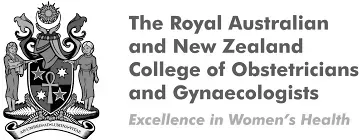Pregnancy Planning
What is Pregnancy Planning?
Pregnancy planning is a proactive approach to preparing for a healthy pregnancy, ensuring the best possible outcomes for both the mother and the baby. It involves steps and considerations that help prospective parents prepare for conception and the subsequent nine months.
What is Pre-Pregnancy Counselling?
Pre-pregnancy counselling is conducted before you conceive and benefits the mother and baby during pregnancy. It aims to prepare you for pregnancy by discussing potential risks and providing information on optimising your health before, during, and after pregnancy.
Pre-pregnancy counselling and care will help you become physically healthy and emotionally strong before you enter the pregnancy phase.
It's good to have pre-pregnancy counselling to understand any risks and how to optimise the health of the mother and baby before, during, and after pregnancy. This counselling can help identify and address any potential issues before they become problems, provide peace of mind, and help prepare for the journey ahead.
What are the Benefits of Pregnancy Planning?
Pregnancy planning is important for couples or women planning to become pregnant. It has many benefits, including:
- Improved maternal and foetal health: Pregnancy planning allows couples or women to optimise their health before conception, leading to better outcomes for both the mother and the baby.
- Reduced risk of complications: Pregnancy planning can help to identify and address any potential risks or complications before they become problems. This can include identifying and managing pre-existing medical conditions, such as diabetes or hypertension, or addressing lifestyle habits, such as smoking or substance use, that could affect the pregnancy.
- Increased chances of a successful pregnancy: Preparing for pregnancy can increase the chances of a successful pregnancy by identifying and addressing any fertility issues early on and any potential risks that could negatively impact the pregnancy.
- Better prenatal care: Pregnancy planning allows couples or women to get an early start on prenatal care, which can benefit both the mother and the baby. This includes identifying and addressing any potential issues early on, as well as providing education and support to help couples or women prepare for the birth of their child.
- Emotional and psychological benefits: Pregnancy planning can help couples or women feel more in control of their pregnancy and provide peace of mind. It can also help couples or women to feel more prepared and confident as they embark on the journey of parenthood.
- Financial benefits: Pregnancy planning can help couples or women budget and plan for the costs associated with pregnancy and childbirth, including medical expenses and time off work.
Key Components of Pregnancy Planning
Preconception Health Check-Up
- Medical History Review: Discussing any pre-existing medical conditions, previous pregnancies, and family history of genetic disorders.
- Vaccinations: Ensuring that vaccinations for diseases like rubella, varicella, and hepatitis B are up to date.
- Screening Tests: Screening for sexually transmitted infections (STIs), diabetes, hypertension, and thyroid disorders.
- Genetic Counseling: If you have a history of genetic disorders, genetic counselling can help you assess risks and consider testing options.
Lifestyle Modifications
- Nutrition: Adopting a balanced diet rich in fruits, vegetables, whole grains, and lean proteins. Folic acid supplements are crucial to prevent neural tube defects.
- Exercise: Regular physical activity helps maintain a healthy weight, improves mood, and increases fertility.
- Avoiding Harmful Substances: Eliminating alcohol, tobacco, and recreational drugs. Reducing caffeine intake is also recommended.
- Stress Management: Techniques like yoga, meditation, and mindfulness can help manage stress levels.
Weight Management
- Achieving a healthy weight is important, as being overweight or underweight can affect fertility and pregnancy outcomes. A BMI (Body Mass Index) within the range of 18.5-24.9 is generally considered healthy.
Monitoring Ovulation
- Understanding the menstrual cycle and tracking ovulation can help identify the most fertile days. Methods include:
- Basal Body Temperature (BBT) Charting: Tracking body temperature daily to detect the slight increase after ovulation.
- Ovulation Predictor Kits (OPKs): Detecting the luteinising hormone (LH) surge that precedes ovulation.
- Cervical Mucus Monitoring: Observing changes in cervical mucus, which becomes clearer and stretchier around ovulation.
Mental and Emotional Preparation
- Emotional Readiness: Ensuring both partners are emotionally ready for the responsibilities of parenthood.
- Support Systems: Building a support network from family, friends, and healthcare professionals.
- Counselling: Seeking professional counselling if there are concerns about mental health or the emotional impact of pregnancy.
Financial Planning
- Healthcare Costs: Understanding the costs associated with prenatal care, delivery, and postnatal care.
- Insurance: Reviewing health insurance policies to ensure they cover maternity and newborn care.
- Savings: Preparing for additional expenses related to baby care, including clothing, equipment, and childcare.
Pre-genetic Testing (PGT)
Preimplantation Genetic Testing (PGT) is a type of genetic testing done on embryos before they are implanted into the uterus. It can be performed on embryos created through in vitro fertilisation (IVF) and can identify genetic disorders or chromosomal abnormalities in the embryos.
PGT is typically recommended for couples or individuals with a known risk of having a baby with a genetic disorder or couples or individuals who have had multiple pregnancies with chromosomal abnormalities or miscarriages. PGT can help couples or individuals select an embryo free of genetic disorders or chromosomal abnormalities, increasing the chances of a successful pregnancy.
Pre-genetic pregnancy testing can help detect genetic conditions or diseases that may affect the developing foetus. Some examples include:
- Chromosomal abnormalities: Chorionic villus sampling (CVS) and amniocentesis can detect chromosomal abnormalities, such as Down syndrome, trisomy 18, and Turner syndrome.
- Genetic disorders: Tests such as carrier screening can identify if the parents are carriers of genetic conditions like cystic fibrosis, sickle cell anaemia, and Tay-Sachs disease.
- Neural tube defects: Tests such as maternal serum screening can detect neural tube defects like spina bifida.
- Other genetic diseases: Other genetic disorders detected by pre-genetic testing in pregnancy include Tay-Sachs disease, Niemann-Pick disease, and Canavan disease.
Samples for testing can be taken from blood, cheek swabs, and amniotic fluid (protective liquid in which the unborn child develops).
Genetic testing provides vital information for diagnosing, treating and preventing various diseases.
Types of Genetic Tests
- Molecular genetic testing is used to study short lengths of DNA to identify mutations. Chromosomal genetic testing to examine changes in chromosomes like duplication or reduction in number and
- Biochemical genetic testing is used to study the amount of protein activity. Although genetic testing may give you insight into the diseases you may develop, you will not always develop a specific condition if your genetic test is positive.
Abnormal Genetic Test Results
Abnormal genetic test results can indicate a genetic disorder or increased risk of developing a particular condition. The implications of abnormal results will depend on the type of test performed and the specific genetic variations identified.
Abnormal results may indicate a diagnosis of a genetic disorder. For example, a positive result on a diagnostic test for cystic fibrosis would confirm the diagnosis.
In other cases, abnormal results may indicate an increased risk of developing a condition but do not confirm a diagnosis. For example, a positive predictive test for a genetic mutation associated with breast cancer would indicate an increased risk of developing the disease. Further testing, such as mammography, would be needed to confirm a diagnosis.
Chance of Having High-Risk Pregnancy
High-risk pregnancies are those that involve potential complications for the mother or baby. These include diabetes, high blood pressure, certain infections, age, and obesity. Sometimes, the mother may have a pre-existing health condition that can increase the risk of complications.
The most important step you can take to protect your and your baby's health is to be informed. Speak with your doctor about any existing health conditions and other factors that may increase your risk of complications. Discuss any medications you are taking, as some may pose a risk.
Advice for Older Women
Women over 35 will be advised on the risks of infertility, abnormalities in the child and pregnancy complications, such as miscarriage and labour problems.
Your doctor may also recommend the following:
- Physical exam of your abdomen, heart, breasts, thyroid and lungs
- Pap smear and pelvic examination
- Lab tests to screen for hepatitis, HIV, rubella, syphilis and other conditions
- Chart menstrual cycles to monitor ovulation and determine the most favourable time to get pregnant
- Advise appropriate vaccinations against rubella or chickenpox, and recommend delay in conception for a month
- Conduct genetic counselling for older mothers or those with a risk of hereditary diseases to help you understand the chances of congenital disabilities or intellectual disability in the child.
Common Preconception Concerns
Infertility Issues
Infertility is defined as the inability to conceive after one year of regular, unprotected intercourse.
Both partners should be evaluated for potential causes, including hormonal imbalances, structural issues, and lifestyle factors.
Treatments range from lifestyle modifications and medications to assisted reproductive technologies like in vitro fertilisation (IVF).
Genetic Concerns
A thorough review of family history can help identify the risk of genetic conditions.
Genetic testing for conditions like cystic fibrosis, sickle cell anaemia, and Tay-Sachs disease can be considered.
Chronic Health Conditions
Conditions like diabetes, hypertension, and epilepsy require careful management before and during pregnancy to avoid complications.
Pregnancy Planning Resources
Educational Materials
Books, websites, and online courses offer valuable information on pregnancy planning.
Support Groups
Connecting with others going through similar experiences can provide emotional support and practical advice.
Healthcare Providers
Regular consultations with healthcare providers ensure personalised guidance and monitoring.



